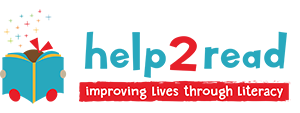Setting our kids up for success in a 21st century world
11 April, 2018
Every week, our Volunteer Reading Helpers and Literacy Tutors sit down with learners in schools across the country for one-on-one reading sessions. The aim of these sessions: to help children learn to read. While the purpose of the weekly reading support might be simple, the ripple effect is hugely significant.
The foundation for education is built upon the ability to read.
Much of Early Childhood Development and Foundation Phase learning is geared towards mastering this very skill. It’s the essential cornerstone upon which further education is built. Until we learn how to read, we cannot read to learn, which makes learning to read the cornerstone upon which further education is built.
The ability to read also has an impact on wealth, the ability to participate in society, uphold democracy and even protect human rights.
UNESCO describes the importance of literacy this way:
“Literacy is a fundamental human right and the foundation for lifelong learning. It is fully essential to social and human development in its ability to transform lives. For individual, families, and societies alike, it is an instrument of empowerment to improve one’s health, ones’ income, and one’s relationship with the world.”
The ability to read is hugely significant, but it is just the first of multiple literacies children must master to thrive in the 21st century.
Six Foundational Literacies For Success
Society is rapidly evolving, and with technological advances, the digital age and new ways of working, it’s not enough to simply be able to read and be competent in languages, mathematics and science. A new set of skills is required of the 21st-century workforce, and at present, there aren’t enough workers that possess the right skill set to meet the needs of businesses across the country. In fact, 87% of CEOs in South Africa view the shortage of skilled workers as the biggest threat to their organisation’s growth.
In an in-depth study of nearly 100 countries, the World Economic Forum (WEF) identified six foundational literacies needed to thrive in today’s fast-track, innovation economy. They are:
- Literacy – Ability to read, understand and use written language
- Numeracy – Ability to use numbers and other symbols to understand and express quantitative relationships
- Scientific literacy – Ability to use scientific knowledge and principles to understand one’s environment and test hypotheses
- ICT / Digital literacy – Ability to use and create technology-based content, including finding and sharing information, answering questions, interacting with other people and computer programming
- Financial literacy (including shareholder) – Ability to understand and apply conceptual and numerical aspects of finance in practice
- Cultural and civic literacy (including political, emotional, environmental) – Ability to understand, appreciate, analyse and apply knowledge of the humanities
Where these six literacies were once sufficient to enter the workforce, they are now just the starting point. In fact, technology is advancing so rapidly that the future of work will look very different 20 years from now. Rapid advancement means that it’s imperative that curriculum is forward thinking, responsive to market needs and quick to adapt. Of particular importance in this regard is digital literacy.
Today, children currently at school will be hitting the peak of their careers in the 2040’s and 2050’s. Yet many, if not most, of the jobs that the current generation of learners will be working on in the 2040’s do not yet exist. That’s because the future of work will be enabled by technologies that have not yet been invented. This makes digital literacy crucial for resilience in the future.
If we want to set children up for success, we have to help them develop skills that equip them to thrive in the 21st century. Before we can do this, it’s imperative that we get reading right as it’s the foundation for all other literacies.

Registered SA Non-Profit 063-979 PBO 930027054 UK Charity Reg No. 1109567 Registered Office: Oak Farm Cottage, Mill Street, Gislingham, Suffolk, IP23 8JT





